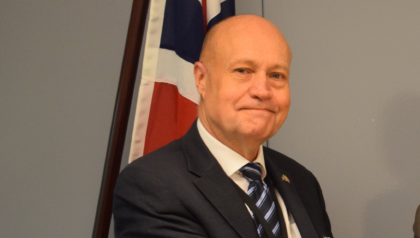The United States, United Kingdom and Norway want South Sudan to make polls possible in December amid sharp divisions among the political parties.
Under a road map to complete South Sudan’s transition to elections and a new government, which was extended in August 2022, the parties agreed to hold general elections after 24 months in December 2024.
Observers believe that South Sudan is facing the prospect of a second extension of the transition period, owing to the delays in implementing key provisions of the 2018 peace agreement.
The three countries calling for elections as scheduled are the main coalition of donors in the world’s youngest nation operating under the auspices of the Troika.
Speaking on behalf of the group at the 37th Ordinary Board Meeting of the RJMEC in Juba on Thursday, the Deputy Head of Mission of the Norwegian Embassy in Juba, Lars Petter Henie, urged the transitional government to fulfil its commitment to the people by implementing the 2018 peace agreement.
“Once again, I urge the transitional government to fulfil its commitment to the people of South Sudan by implementing the peace agreement,” Henie said.
With only five months left until the elections according to the Roadmap, the Transitional Government and parties must intensify their efforts to create the conditions that make genuine and peaceful elections possible and that advance peace, human rights, and democracy, he said.
The Norwegian diplomat called upon all the political parties to dialogue, both among the leaders in Juba and at the Tumaini Initiative talks in Kenya.
“Willingness to engage in dialogue is a key indicator of political will to take the steps needed to establish a better future for the South Sudanese people.
“We renew our call for a leadership-level inter-party dialogue that includes the President, the First Vice President, and other leaders. This dialogue should have the objective of making genuine and peaceful elections possible. The parties must work together to find a way to achieve this, including by addressing the 10 key issues identified by UNMISS, the African Union, and IGAD. The Tumaini initiative provides a foundation for the inclusion of the non-signatory groups to sustain peace and should complement the implementation of the Revitalized Agreement,” explained Henie.
More than 30 days have now passed since the Transitional National Legislative Assembly’s passage of legislation that gives the National Security Service the authority to conduct arrests and detentions without warrants.
Henie expressed concern that these controversial provisions may enter into force, noting that the enactment of the Bill into law would undermine the transitional government’s assertions that political and civic space exists.
“All South Sudanese should have the right to participate freely in political and civic expression without fear of arbitrary arrest or intimidation by security personnel,” he said.
The diplomat further expressed concern that the security sector reform was not taking place as agreed. He said the reform was necessary to counter the growing impact of intercommunal violence, and to create a conducive environment for political campaigning.
He said the coming months will be extremely challenging, pointing out that difficult economic situation had negative political and security implications.
Over 3 million people may be affected by floods, some 750.000 returnees and refugees from Sudan have sought shelter in South Sudan, and many need assistance. Teachers and public servants were experiencing significant salary arrears.




